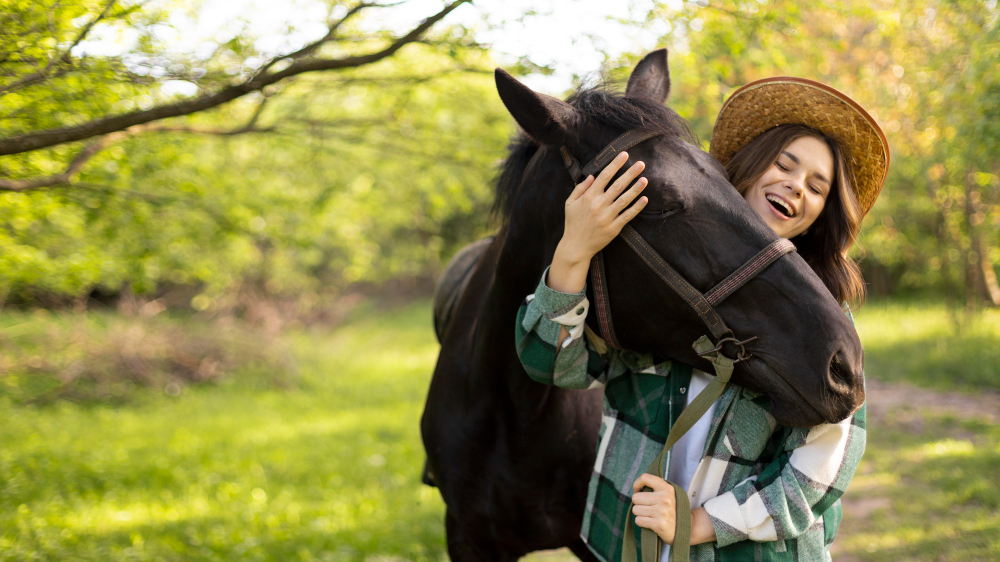Vitamin E is one of the most talked-about nutrients in equine health, yet it is also one of the most misunderstood. As horse owners and caretakers, we often hear various claims about its necessity, benefits, and risks. Unfortunately, many myths surrounding Vitamin E supplements have persisted over time, leading to confusion and potential mismanagement of horses’ health. This blog aims to dispel the most common myths about Vitamin E supplements for horses and provide you with evidence-based facts.
Myth 1: “All Vitamin E Supplements Are the Same”
One of the most widespread myths is that all Vitamin E supplements are created equal. However, this is far from the truth. Vitamin E comes in two main forms: natural and synthetic.
Natural Vitamin E (d-alpha-tocopherol): This form is derived from natural sources and is more bioavailable to horses, meaning it is absorbed and utilized more effectively. Natural Vitamin E is often more expensive but is generally considered the better option for equine health.
Synthetic Vitamin E (dl-alpha-tocopherol): This form is chemically synthesized and less bioavailable. Horses must consume about twice as much synthetic Vitamin E to achieve the same levels of bioavailability as natural Vitamin E.
Not knowing the difference between these forms can result in ineffective supplementation. If you’re using a synthetic product but are unaware that it requires a higher dosage, your horse may not receive the amount of Vitamin E it needs. For optimal results, it’s essential to select the appropriate form of Vitamin E based on your horse’s needs and consult with a veterinarian or equine nutritionist to determine the right dosage.
Myth 2: “Pasture Horses Don’t Need Vitamin E Supplements”
While it is true that fresh, green pasture is an excellent source of Vitamin E, it is a misconception that horses grazing on pasture do not need supplementation.
Pastures rich in Vitamin E are typically available only during certain times of the year, often in the spring and early summer. During the fall and winter, the Vitamin E content in the grass decreases, leaving horses deficient if they rely solely on pasture. Horses that spend time in dry lots or are on hay-only diets for extended periods may also be at risk of deficiency.
Horses with specific health conditions, especially those with compromised immune systems or metabolic disorders, may require more Vitamin E than what pasture alone can provide, even during optimal grazing seasons.
Thus, while pasture may reduce the need for vitamin E supplements for horses in the short term, consistent monitoring and supplementation may be required to ensure adequate Vitamin E levels year-round.
Myth 3: “Horses Can Get Enough Vitamin E from Hay”
Many horse owners assume that hay can provide adequate Vitamin E for their horses. However, Vitamin E levels degrade quickly once grass is cut and dried to make hay.
Within just a few weeks of harvesting, the Vitamin E content in hay drops dramatically. By the time hay is stored and fed to horses, its Vitamin E levels are often negligible. Therefore, horses that are primarily on hay-based diets are at a high risk of Vitamin E deficiency unless they receive a supplement.
Horses that rely on hay for most of their diet, such as those kept in barns or regions with limited pasture access, almost always require Vitamin E supplementation to maintain adequate levels in their system. Even high-quality hay cannot provide enough Vitamin E to meet a horse’s daily needs over time.
Myth 4: “Vitamin E Supplements Will Make Horses Gain Weight”
Some horse owners mistakenly believe that supplementing with Vitamin E will cause weight gain. However, Vitamin E is not a caloric nutrient, meaning it does not provide energy in the form of calories that would contribute to weight gain.
While Vitamin E is involved in many metabolic processes, it does not directly influence a horse’s weight. If you’re concerned about weight gain, it’s important to evaluate other factors in your horse’s diet, such as caloric intake and exercise levels.
If your goal is to support healthy weight gain in your horse, especially in underweight or growing horses, you might consider using horse weight gain supplements in conjunction with proper Vitamin E supplementation. These products typically contain calories from fats, proteins, and carbohydrates, which directly contribute to weight gain.
